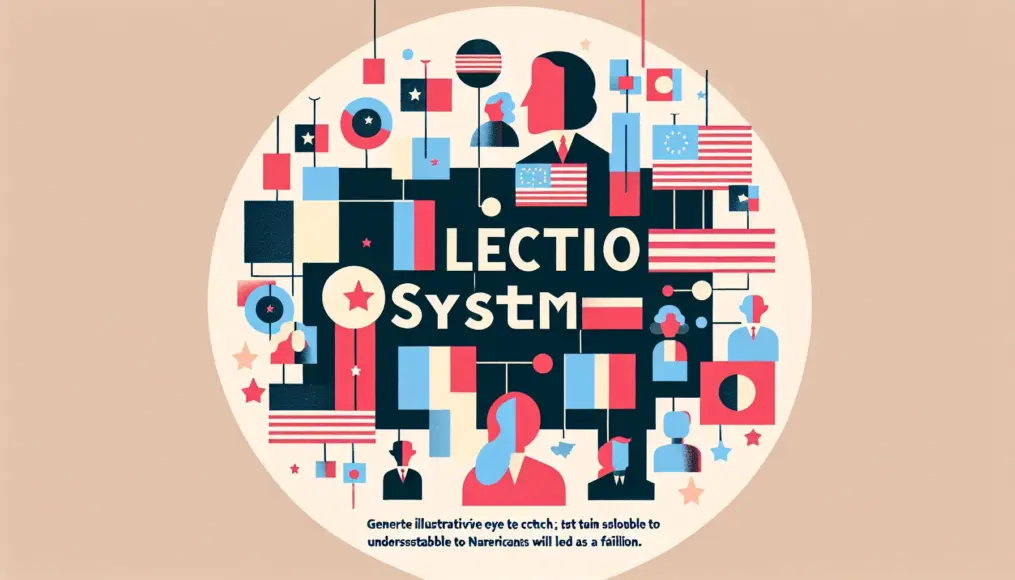The relationship between the United States and Japan is a captivating topic that has evolved significantly over time. Beginning with post-war recovery, moving through the Cold War era, and continuing to the present day, numerous events have shaped the ties between these two nations. Beneath the surface, cultural influences and psychological factors play a crucial role, making it essential to consider these elements for a deeper understanding of their relationship.
In this article, we’ll reflect on the historical background of U.S.-Japan relations, while also examining the impact of national sentiments, the role of media, and the importance of cultural exchange. Additionally, we’ll look ahead to the future, contemplating economic collaboration and responses to new international challenges. Through this exploration, we aim to uncover the truths that define U.S.-Japan relations.
- We’ll delve into the historical background and its impacts on U.S.-Japan relations.
- We’ll consider the psychological effects of national sentiment and media influence.
- As we look to the future, we’ll explore economic collaboration and responses to international issues.
Historical Background of Japan-U.S. Relations
The relationship between Japan and the United States has evolved significantly since Japan’s post-war recovery, shaped by a long history marked by numerous changes. In this section, we will first explore the post-war history and its implications, followed by an examination of the relationship between the two countries during the Cold War. Understanding this background helps illuminate how the current dynamics between Japan and the United States have developed and how they affect our daily lives.
Post-War History and Its Impact
After World War II, Japan embarked on a path of recovery with substantial support from the United States. During this period, the U.S. implemented policies aimed at fostering Japan as a new democratic nation. As a result, Japan experienced rapid economic growth. However, this growth came with a strong dependence on the U.S., leading to significant political and economic influences from America.
Furthermore, while Japan embraced a pacifist stance after the war, it secured military protection through a security treaty with the United States. This relationship not only brought stability to Japan but also established it as an important strategic partner for the U.S. Thus, the post-war history laid the foundation for Japan-U.S. relations, influencing both countries’ positions in the contemporary international landscape.
- After the war, Japan rebuilt with American assistance
- U.S. policies contributed to the development of Japan’s democracy
- The security treaty strengthened the military ties between the two countries
The Relationship During the Cold War
During the Cold War, the Japan-U.S. relationship took on a more complex character. The U.S. positioned Japan as a crucial ally in its efforts to curb the spread of communism, providing economic support and technological assistance. While Japan continued to grow economically under U.S. influence, the relationship also impacted public sentiment in Japan.
Even after the Cold War ended, the Japan-U.S. relationship maintained its significance; however, as international circumstances evolved, there was a need to reassess the dynamics between the two nations. In this way, the Cold War period represents a pivotal turning point in Japan-U.S. relations, continuing to exert a substantial influence on current diplomatic policies.
- During the Cold War, the U.S. regarded Japan as a key ally
- Economic support contributed to Japan’s growth
- There were instances where public sentiment affected Japan-U.S. relations
The Impact of Psychological Factors
The formation of U.S.-Japan relations is influenced not only by historical contexts but also by psychological factors. How do national sentiments and the media shape the foreign policies of both countries? In this section, we will explore the relationship between public sentiment and foreign policy, as well as how the media affects U.S.-Japan relations. Understanding these psychological factors will help us grasp how this relationship has evolved and what the future might hold.
National Sentiment and Foreign Policy
Public sentiment is a crucial element in international relations. In the case of Japan and the United States, the emotions held by each nation have consistently influenced their relationship since the post-war era. For instance, while Japan feels gratitude for American assistance during its reconstruction, there have also been moments of discontent regarding certain U.S. policies. Such sentiments often find their way into the actions and decisions of politicians and government officials.
Moreover, public sentiment can change over time. During the Cold War, the presence of a common adversary solidified the U.S.-Japan alliance. However, after the Cold War ended, doubts and concerns about American influence began to emerge, leading to fluctuations in national sentiment. Thus, public emotion plays a significant role in shaping the trajectory of U.S.-Japan relations.
- National sentiment is a key factor influencing foreign policy.
- Gratitude and discontent coexist within the populace.
- Public sentiment evolves based on historical contexts.
The Role of Media and Its Influence
The media serves as a vital source of information for the public and plays an important role in U.S.-Japan relations. The way news is reported and presented can significantly impact national sentiment and foreign policy. For example, positive coverage of the United States can enhance Japanese citizens’ understanding and interest in the country, while negative reporting may trigger anxiety.
Furthermore, with the rise of social media, information spreads instantaneously in today’s world, amplifying the media’s influence. Particularly, information related to international relations can rapidly shape public consciousness. In this way, the media’s role is indispensable in the formation of U.S.-Japan relations, making it essential to pay attention to its evolving landscape.
- The media plays a crucial role as a source of information for the public.
- Positive reporting deepens understanding, while negative coverage can create anxiety.
- The rise of social media has increased the media’s influence.
The Importance of Cultural Exchange
Cultural exchange plays a vital role in strengthening the relationship between Japan and the United States. Through education, art, and entertainment, both countries can understand and respect each other’s cultures. In this section, we’ll explore how the impact of education and study abroad programs, as well as the exchange of art and entertainment, are enhancing the Japan-U.S. relationship. These cultural connections serve as a foundation for deepening ties between nations.
The Impact of Education and Study Abroad
Education is a crucial tool for promoting international understanding. Studying abroad in the U.S. for Japanese students, and vice versa, offers students fresh perspectives and invaluable experiences of different cultures. By engaging with diverse values and lifestyles, students cultivate a global mindset, creating an environment where future leaders can collaborate more effectively.
Moreover, the relationships built during study abroad experiences are essential for the long-term support of Japan-U.S. relations. Those who have studied abroad often return as informal ambassadors, deepening their understanding of America and fostering friendly ties. In this way, education and study abroad programs are key elements that can illuminate the future of Japan-U.S. relations.
- Study abroad offers a valuable opportunity to experience different cultures.
- A global mindset is fostered, creating a more collaborative environment.
- Study abroad alumni become ambassadors who build friendly relations.
The Exchange of Art and Entertainment
Art and entertainment are also indispensable components in deepening Japan-U.S. relations. There are numerous exchanges across various genres, including films, music, and art exhibitions. For instance, Japanese anime and manga have gained immense popularity in America, creating a large fan base. Conversely, American films and music are also celebrated in Japan, leading to a mutual influence between the cultures of both countries.
Such cultural exchanges not only enhance understanding between the people but also generate economic connections. Art events and music festivals attract many visitors, contributing positively to tourism and business. Cultural interactions serve as a crucial key to fortifying Japan-U.S. relations.
- Art and entertainment promote cultural exchange.
- Japanese anime and manga are beloved in America.
- Cultural events generate economic connections.
Future Prospects and Challenges
The U.S.-Japan relationship faces a variety of prospects and challenges moving forward. Strengthening economic ties and responding to new international issues are particularly significant themes for both countries. In this section, we will explore the potential for development through economic cooperation and how to prepare for the evolving international landscape. Understanding these points will illuminate a path toward a brighter future for U.S.-Japan relations.
Strengthening Economic Ties
Economic collaboration is crucial in the U.S.-Japan relationship. The two nations have established strong connections through trade and investment. Notably, Japanese technology and products are highly regarded in the American market, which presents substantial business opportunities for Japan as well. Further enhancing these economic ties is key to building a win-win relationship for both countries.
Looking ahead, cooperation will also be essential in emerging industries and technological innovations. For instance, by working together on issues like environmental challenges and advancements in digital technology, both nations can exert significant influence on the international stage. Strengthening economic ties is thus a vital element for a promising future in U.S.-Japan relations.
- Economic ties are the foundation of U.S.-Japan relations.
- Japanese technology and products receive high praise in the American market.
- Cooperation in emerging industries is essential.
Addressing New International Issues
The international landscape is constantly shifting, and U.S.-Japan relations are no exception. There is an increasing demand for responses to new international challenges. Issues such as climate change, terrorism, and cybersecurity require more international cooperation than ever before. By joining forces to tackle these challenges, the U.S. and Japan can build a safer and more sustainable future.
Moreover, a flexible approach is necessary when addressing new international challenges. Respecting each other’s viewpoints and collaborating to find solutions will strengthen U.S.-Japan relations further. Addressing international issues is a critical aspect that will shape the future of U.S.-Japan relations and is indispensable for considering future prospects.
- A response to new international issues is necessary.
- It is vital for the U.S. and Japan to cooperate in building a safe future.
- A flexible approach will strengthen U.S.-Japan relations.
Conclusion
The relationship between the United States and Japan has been shaped by a rich tapestry of historical context, cultural exchange, and economic collaboration. Public sentiment and media influence play crucial roles in this dynamic, reflecting in the foreign policies of both nations. Looking ahead, there is a pressing need for both countries to tackle new international challenges and enhance economic cooperation, fostering a spirit of collaboration that we hope will continue to grow.
As we can see, the U.S.-Japan relationship is a complex interplay of various factors, making it essential for both nations to deepen their understanding of each other as they move forward. The roles of both countries in the international community are becoming increasingly significant, and we should keep a close eye on the future of U.S.-Japan relations.
- The U.S.-Japan relationship is built on history and culture.
- Public sentiment and media are important influencing factors.
- Economic collaboration and responses to international issues are key to the future.
As we look forward with optimism, let’s work on deepening our understanding of U.S.-Japan relations. We’d love to hear your thoughts and feedback in the comments!



Comment